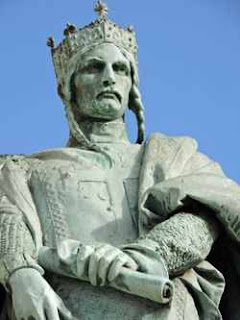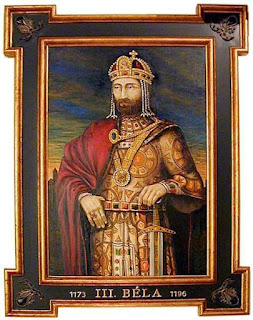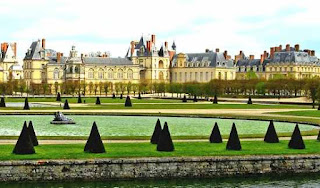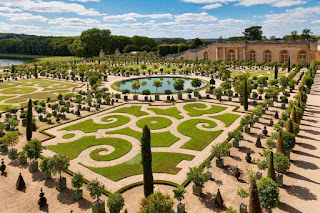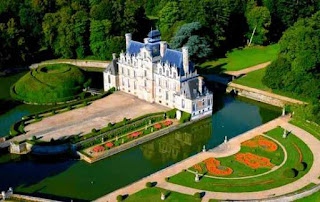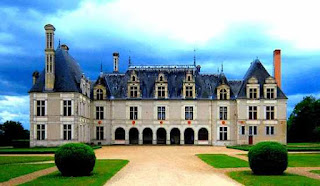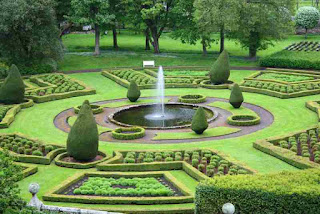Manly King Andrew II, Braids & All
A leader of the wicked Crusades? Beginning with a murky tale of succession after Béla the III died.
Béla's son, Emeric, became King of Hungary and ruled for 8 years.
During which time Andrew convinced Emeric to forfeit his lands of "Dalmatia and Croatia", and title them to his name.
During which time Andrew convinced Emeric to forfeit his lands of "Dalmatia and Croatia", and title them to his name.
Then, Emeric became quite ill and died, leaving the Kingdom of Hungary to his 4-5 yr old son Ladislas the III.
Ladislas the III, died within 6 months of his "child rule", and immediately, thereafter: Andrew became King of Hungary.
Ladislas the III, died within 6 months of his "child rule", and immediately, thereafter: Andrew became King of Hungary.
Árpád Dynasty King at 28 Years Old
Now, if Andrew was dedicated to the "Throne", and exceedingly ambitious, he very well could have secretly ordered the death of the young boy. "A boy king?"The chances are quite high Ladislas was poisoned.
Not much is said though, about the upstaging "all of a sudden" from Andrew.
After all, Andrew was a true descendant of Béla, just known to be pushy for land and titles with his older brother Emeric.
Therefore, thoughts can't help but to linger towards if the boy was assassinated in a quest for power.
After all, Andrew was a true descendant of Béla, just known to be pushy for land and titles with his older brother Emeric.
Therefore, thoughts can't help but to linger towards if the boy was assassinated in a quest for power.
It was power too, Andrew reigned from 1205 to 1235, 30 years as King.
He built an army of 15,000 men with horses, & countless infantry, all requiring food, housing and provisions. Andrew and his army traversed, and claimed: Halych and Lodomeria in the Rus territories after many failed battles.
He built an army of 15,000 men with horses, & countless infantry, all requiring food, housing and provisions. Andrew and his army traversed, and claimed: Halych and Lodomeria in the Rus territories after many failed battles.
To the Crusades
However, Andrew's father, Béla the III had wanted the Crusades to take hold. So, in effect Andrew eventually followed his father's orders.The dutiful son fulfilling his destiny off to the Holy Land, the 5th historical Crusade for a military coup d'etats.
He had been fighting for years prior so he may have already experienced too much sadness from war and by losing his first Queen.
Not alone in this quest, Leopold of Austria, The Templars, Teutonic Knights, & The Emperor of Constantinople, John of Brienne
In Jordan and Andrew achieved only a mild success, when the Egyptian Sultan Al-Adil I, Sultan of Egypt forfeited.
Andrew became more intrigued though, by the local trinkets and after a years time returned to Hungary.
Returning to Hungary, finding disquieted nobles demanding freedoms from non-paid Military duty and over-taxation.
The Golden Bull
In 1222, he decreed "the Golden Bull", to include some limits to his power, increasing nobility power in the counties, plus freeing the elites from taxation and being in the military without a hefty pay scale. Surely, he was pushed to it, the expenditure of running his kingdom was costly, constantly having to sell his lands and castle quests, in order to maintain his "powerful stance in the public eye".
By creating his "rich coup of noble friends" they were given a trump card, to look lightly upon him with favoritism in the immediate future.
The Golden Bull was essentially the same as the rich guise under to this day. Using corporate leveraging to remove themselves from being drafted, and lobbyists to increase their business powers. The free taxation in our today's time is "Golden Bull" given to certain businesses: agriculture, forestry, weaponry, gas & oil and other tax-free and tax-reduced government granted subsidies.
What a tangle of the rich to keep, since 1222.
Andrew's Wives
During his campaign of Galicia in the Kingdom of Ruthenia, from the North Sea to the Black Sea. "When the cats away, the mice will play", and his Gertrude*, lost her life.In 1213, The Lords of Hungary murdered his wife Queen Gertrude of Merania & most of her courtiers, due to her & her court, siding with the Germans. Upon his return Andrew had the murderer, "Peter, son of Töre" was executed, and Andrew left the other lords, to be named as perverts.
There was quite a bit of murderous fallout with the Germans, even between the Germans themselves at the time.
The group of Lords feared a German takeover, and apparently not the wrath nor chance of death from Andrew, upon his return.
What can be said about the year 1213, a despicable number 13. Raining itself throughout history.
Three years past, and he married again, to Yolanda de Courtenay
later to Beatrice d'Este in 1233.
Andrew's Age-gap Wives
- Queen Gertrude (Merania) was 8 yrs younger.
- Yolanda de Courtenay was 23 years younger.
- & Beatrice d'Este was 38 yrs younger.
Andrew's End
Andrew died shortly after his trip to Vienna, in 1235. At the age of 58.
In the Summer of 1235, he made a trip of demands to Austria,
to retrieve indemnification costs from Duke Frederick,
whose troops had recently caused damages when they raided Hungary.
Andrew's Son: The next King of Hungary, "Béla the IV"
*During Gertrude's short life, before being murdered in the Pilis Hills, on 28 September 2013, Queen Gertrude of Merania, bore Andrews' Royal son, Béla. He became the next King of Hungary, "Béla the IV" immediately after Andrew's death. Béla, was named ruler of Hungary at the age of 29, and ruled for 35 years. A larger Army than his father, of 60,000, with many battles away from Hungary, and yet he was known more for being defeated by the Mongols.Son of Béla III of Hungary. Andrew reigned during 1205 to 1235, 30 years.
King of Jerusalem, Hungary and Croatia.
Genealogy Notes
*My ancestral Queen from Andrew's wives: Queen Gertrude.link to wiki: Andrew II
xlsx sheet link: 10 "Andrew II" Crowns:
Mother’s Ancestry side: Baker, Thomas (4), Sevey (2), Vaux (2), Williams
or the Kings of Europe Chart: Ancestry Kings Chart








